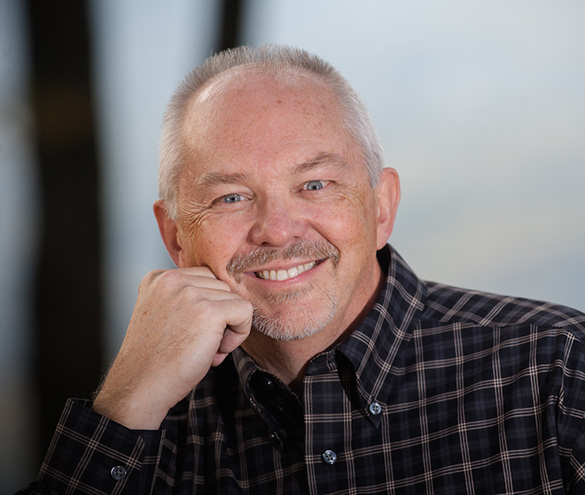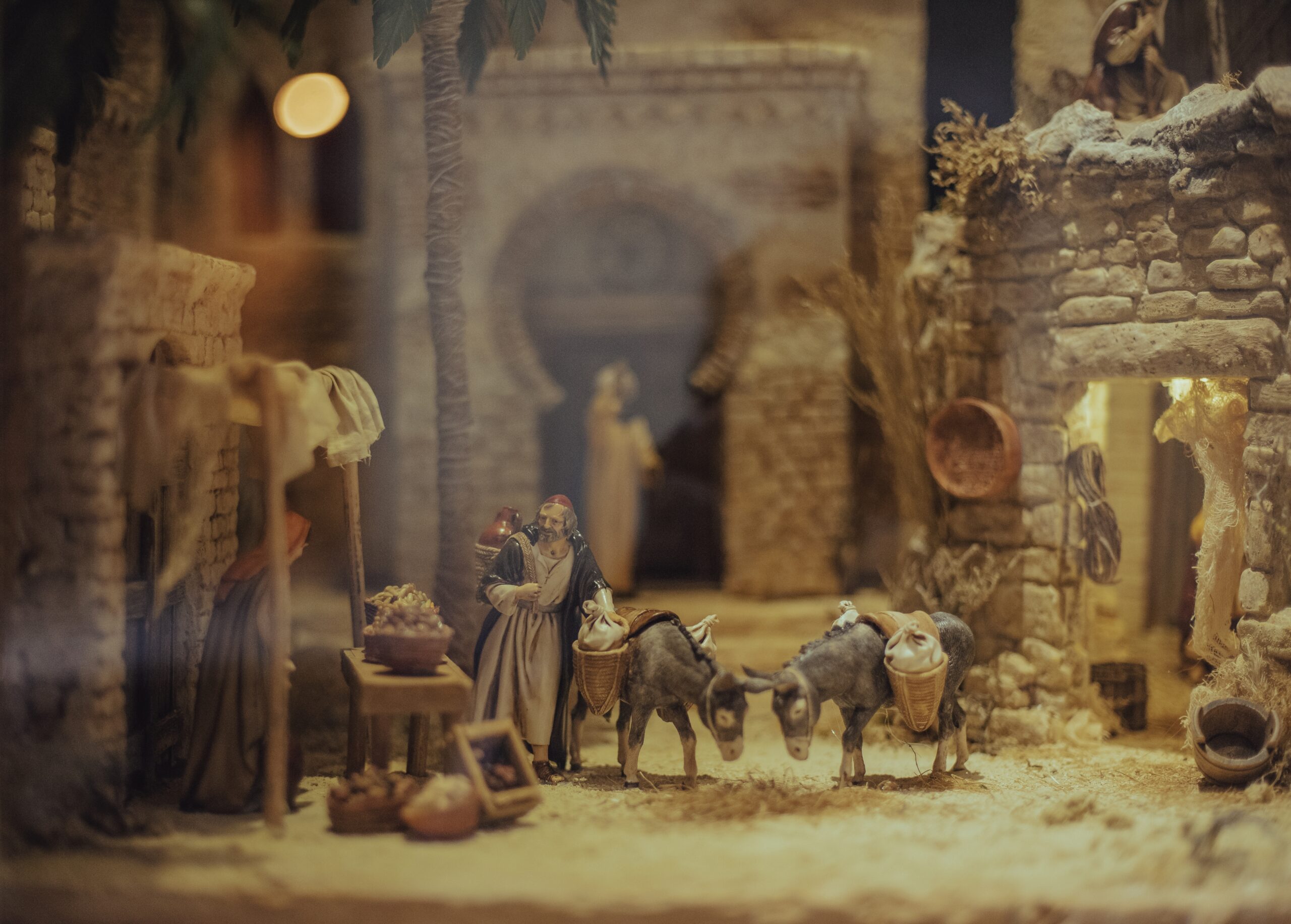Welcome to the Gospel Reverb podcast. Gospel Reverb is an audio gathering for preachers, teachers, and Bible thrill seekers. Each month, our host, Anthony Mullins, will interview a new guest to gain insights and preaching nuggets mined from select passages of Scripture in that month’s Revised Common Lectionary.
The podcast’s passion is to proclaim and boast in Jesus Christ, the One who reveals the heart of God, Father, Son, and Holy Spirit. And now onto the episode.
Anthony: Hello, friends, and welcome to the latest episode of Gospel Reverb. Gospel Reverb is a podcast devoted to bringing you insights from Scripture, found in the Revised Common Lectionary, and sharing commentary from a Christ-centered and trinitarian view.
I’m your host Anthony Mullins, and it’s my delight to welcome our guest, Paul Young. Paul is the author of the New York Times bestseller book, The Shack. It sold over 20 million copies worldwide — that number’s just hard to fathom. His other books included Eve, Crossroads, and Lies We Believe About God. Paul, thanks for being with us. Welcome to the podcast, and it’s your first time with us. So, we want to know how in the world are you? How’s your family? And maybe if you’re willing to, give us some insights on the projects you’re currently working on.
[00:01:23] Paul: Anthony, it’s great to be with you. I so appreciate it. Actually, my whole life is led up to this moment, so why would I want to be anywhere else?
Anthony: Amen.
Paul: Family’s good. We now have 17 grandchildren …
Anthony: 17!
Paul: I know. Weird, right? And we’re probably …
[00:01:44] Anthony: Do you have a favorite?
[00:01:46] Paul: The one that I’m thinking about at any given moment.
[00:01:49] Anthony: There you go. Good answer.
[00:01:51] Paul: It’s the true answer, just like when somebody asks you about which of your children do you love the most? And it’s like, right at this moment, it’s X because I’m thinking about him or her.
Anthony: Yeah.
Paul: And I love that. I love that each child brings with them a space they put in your heart that only they can fill. And it’s like that I have that space inside of Jesus, inside the Trinity, and I’m the only one that can fill it. So, that’s a great place of rest for us all.
So, family’s good. Lots of little projects and big projects. I’ve just finished writing the sequel for The Shack and they’re going to announce it this month sometime.
[00:02:46] Anthony: Oh, and is this breaking news? Are we the first to hear this?
Paul: Oh, kind of.
Anthony: All right, world. You heard it.
[00:02:55] Paul: Yep. Yep. You heard it here. But they plan to release the book in October 2026 for a lot of different reasons. One is that they want to do a global release in terms of English and other languages at the same time, which is … I didn’t even know they did that kind of stuff. And it’s pretty fun.
I’m working on a large musical stage production of the Shack that’ll
Anthony: Come on.
Paul: Oh, I know. I love live theater. And so, it’s rapping, modern music, with a libretto, which was my first time ever writing one of those. So, it was a great learning curve. I worked with Janice Patel, who is an American soprano who lives in Germany most of the time.
And then, we’ve got some great creative talent. We might have a partnership with a community of people that put out huge choirs. But we’ll see. It’s a work in progress. We’ve been working on it for three years already, and it will probably launch in 2028 and in Germany, in the German speaking world before it then moves out from there. But that’s pretty cool.
[00:04:16] Anthony: That is. Oh, and before we started recording, you were actually singing. Do you want to give us a bit of a rendition on this music? This is your opportunity, your stage, sir.
[00:04:30] Paul: I’m not in this thing and for good reason. I could … never mind. That’s in the works. I’ve got some more book projects that are at different stages of creation.
But here’s what’s cool, Anthony. I don’t need any of these things. My identity is not in a book. It’s not in a movie. And so, that was one of the best things about writing The Shack is that by the time I wrote it, the real important things were in place to me. And I didn’t intend to write it for the world. I just wrote it for my six kids as a Christmas present. And made my 15 copies at Office Depot, because they had a sale going on. And I gave it to my kids for Christmas and then extras to my friends and they gave it to their friends and those friends wanted to give it to their friends. And that’s started a chain reaction.
But the things that were in place were things like identity and worth and value, significance, security, meaning, purpose, destiny — whatever that means, community, and love. And so, I didn’t need it. Thank God! And I mean that very literally.
Anthony: I think you do.
Paul: Because I’ve watched notoriety and platform and things like that just mess with people big time. It’s a cross.
Anthony: Yes.
Paul: And the one gift that it did give me was — and my family and my friends — The Shack became a doorway. It became an invitation to walk, to enter and walk on the holy ground of other people’s story. And I’m using the metaphor from Moses seeing a burning bush in the wilderness and he ends up taking his shoes off because it’s holy ground. The beauty is that every single person you ever meet is a burning bush.
Anthony: Yes.
Paul: The presence of God is in them, burning away — which is what love does — burns away everything in them that is not of love’s kind and that prevents them from being fully human and fully alive. So, I believe that God is a fiery fury, but that that is always aimed at that which keeps the child from being fully human and fully alive. And so, it’s not aimed at the child. And we know that. If we have any kind of a healthy relationship with our children and we are healthy ourselves, that our fury is not aimed at the child. It’s aimed at that which is harming them. And I think that’s the nature of the love of God.
The early church saw it as a doctor in a hospital, not a litigator in a courtroom or a judge in a courtroom. That came with our ancestry of lawyers like Augustine and Luther and Calvin. They were all lawyers. And so, they came up with what, traditionally, is called forensic theology, law room theology. But that’s not how the early church saw it at all. It was a doctor in a hospital, and, of course, you want to go see the doctor in the hospital to judge you. Of course you do, because you want to know why you’re sick. And then, you want that judge, that doctor, to then what punish you? Yeah, with a cast or with chemo or whatever. The whole goal of that profession is to heal you. And the whole goal of the love of God is to restore and heal you.
[00:08:05] Anthony: Yeah. And thanks be to God that this physician also became the patient.
Paul: The great physician.
Anthony: Oh, yes, he is. And he became the patient to heal us inside out.
Paul: Absolutely.
Anthony: Oh, what a gift.
Paul: Oh my gosh. Yes.
Anthony: And you’re talking about the follow up to The Shack and so this is probably appropriate timing to ask you this. I looked it up: 18 years since The Shack was published.
Paul: I know.
Anthony: And I still recall the first time I read it. It rocked my world. And I can only imagine in some ways how it changed yours. But you just reflected on, it didn’t change the most important things. But I just want to invite you to take a moment to reflect and maybe share a story or two of the impact that work had on people that you’ve met around the world.
[00:08:55] Paul: Man. I mean, there are literally thousands that I know of. And who knows what kind of ripple effect it had. Again, I didn’t know what was going to happen with this thing. I only knew that this was a way to, one, submit to my wife who wanted me to write something, she said, as a gift for our kids. One day later, she told me she was thinking four to six pages, but she didn’t tell me that. And so, she said, “You know, you think outside the box and I think it would be a good thing.” So, that’s why I did it. And none of this is anything that I could have even imagined.
So, walking on the holy ground of other … you know, every human being is a story. So, the fact that The Shack has found a way inside so many people’s hearts and lives and changed things in terms of perspective. It’s raised the bar on our theology, because a lot of us had a God that actually wasn’t worth trusting. I had a missionary kid friend email me and say, When I was growing up, I couldn’t really tell the difference between God and Satan, except with Satan, I just knew where I stood.
Anthony: Hmm. Wow.
Paul: I know.
Let’s see, a story. I spoke and then there was a book signing. And when this first started, I had no clue about how do you even sign books. But I could never sit behind a table. It just never worked for me. I mean, how can you hug anybody from behind a table?
Anthony: Good word.
Paul: But I’m standing in front of this table and this couple comes up and they start putting photographs down on the table. And they told me that about three years prior to this, their early-twenties-something daughter had been killed by a drunk driver going the wrong way down a one way. An only child. Devastated them, especially the mom. And she couldn’t climb out of the hole. She just was stuck. They’d never heard of The Shack or anything like that.
But finally, in sort of desperation, the husband said, “There are two states next to us. Why don’t we just go explore, just get away from here.” Because every time something came up, it just knocked her back into the abyss. And so, they decided to do that, take about two weeks, and just explore places, just drive. And they were, somewhere around a week or a little more, they were in some little town that they’d never heard of and got a bed and breakfast.
In the morning, the husband said, “You know, why don’t we just a put together a lunch and go find a picnic table at some park” — because every town, you would think, would have a park — “and then have our lunch.” She said, “Great idea.” So, they packed up all their stuff and they went into town, around the town, looking for a park, and they couldn’t find one. They were doing these concentric circles.
Finally, they were driving. The town was small and they were outside of town, and they decided to just drive around on these roads. About an hour later, the husband says, “Why don’t we just go back to our bed and breakfast and put our little plastic tablecloth on the table in our room and have our camping lunch?”
And she said, “No, why don’t we just go down this road” — paved road, and by then they’re outside the town. This is Midwest stuff and there are big, huge fields, hardly any houses. If there were, they were set way back. And she said, “Let’s go down here.” So, they go five or six miles and then she says, “Let’s take that road,” a dirt road that went just off to one side.
And so, they took that road for about a couple miles and suddenly the husband goes, “Look!” And he’s pointing at a field, nothing in it, but a picnic table right in the middle of this field, way behind where it was a fence, no houses, nothing. But there was a little outbuilding near the fence. So, they pulled all their stuff out and they go walk over to what they thought was a picnic table.
And they’re showing me photos of all this, right? Putting them on the table. And it wasn’t a picnic table. It was actually probably the last thing remaining from a house that used to be there, probably burned down, and then all the wood taken away for something else. But it was the concrete steps that went up to just a flat surface.
And they’re like, “Closest thing to a picnic table we’ve seen.” So, they laid out their little plastic thing and their plastic wear and the food that they had put together, sandwiches and stuff. And they started eating.
They finished, or they weren’t quite finished, but the wife says, “You see that little building over there? There’s a sign, oval sign above the door, but I can’t make it out.” He says, “I’ll walk over and tell you what it says.” So, he does, and he comes back and he says, “All it says is The Shack.” And means nothing to them. They go, “Oh.”
They pack up their stuff, heading back to the car, and suddenly the wife stops and she says, “I’m going to go in there.” He goes, like, “Go in where?” She says, “That little building over there. I’m going to go in there, The Shack.” And he says, “I don’t think that might be a good idea, because somebody might be in there and you don’t want to disturb anybody suddenly.” And she says, “You go to the car, I’m going go into The Shack.”
So, he follows her. She’s just determined. She gets to it, and they have pictures, right? The little oval sign that was above the door that says, The Shack. And she just goes in. She doesn’t even knock. It’s just four walls. And on one side there’s a desk. And on the desk, there’s a signup sheet and a little sheet that had big printing instructions.
And then to the right of that, there’s a book they’d never heard of. And the little instructions sheet just said, “Take whatever you need.” And they look at this signup sheet and people from all over the United States had come there and they signed their names and where they were from. And she holds up this book and she said, “Your book saved my life.” And she’s just bawling. Somebody got a nudge from the Holy Spirit to have copies available to whoever happened to come by.
[00:15:33] Anthony: No way.
[00:15:34] Paul: Yeah. Isn’t that wild?
[00:15:35] Anthony: That’s unreal.
[00:15:36] Paul: And they had a picture of the signup sheet. They had a picture of everything, and they just got a nudge. And people came from all over the United States and found this little outbuilding in the middle of nowhere and copies of The Shack.
[00:15:55] Anthony: I’m speechless. It’s this — that sounds like you made it up.
Paul: I know.
Anthony: It’s so good. And really isn’t that the truth about what people believe about God? You got to be making that up. He just can’t be that good.
[00:16:09] Paul: Yeah. Part of it is that, that we were trained in the modern world to not trust the living Father, Son and Holy Spirit that dwell within us. We lost that when the experts started taking over what God was saying and they were just waving the Bible around and saying, “We’re trained in this, so we know what God is saying and you need to listen to us because who knows, if you think God is talking to you probably will do something stupid.”
And the reality is we were told a lot of stupid things based on people’s perspective and biases. And it didn’t help. And there’s a lot of great things. I love experts in what they do, but we were told a lot of lies and we didn’t have the sense that we could hear the Holy Spirit for ourselves. That’s changing. That’s changed.
[00:16:59] Anthony: Yeah. I thank God for that sale at Office Depot or wherever it was that you printed this book, because it has been such a gift to me, to millions around the world. I grew up with this idea that Jesus could be tender. He could wash feet. He could sit with a woman all day at a well. He could go to Jairus’s house in great mercy. But I had a real issue with God the Father being tender.
Paul: Yeah, me too.
Anthony: I could see him holy. I could see him righteous. I could see him aloof. I could see him really constantly mildly disappointed, but to think of him as tender. Oh, that was radical. Radical change.
[00:17:46] Paul: For sure. We somehow forgot that Jesus would say things like, “If you’ve seen the Father.” You’ve actually — “if you’ve seen me, you’ve seen the Father.” “I and the Father are one.”
And I did what a lot of people have done who have not grown up with a good father. My dad was a good man, but he was so broken, he didn’t know how to raise a child. And so, he was a hitter, and I painted the face of God with the face of my own dad. And it took a lot of years for me to get out from under what you’re talking about and begin to realize, oh my gosh, there’s not two gods here. Yes, there’s only one. And Jesus is the face of that God.
[00:18:31] Anthony: I can hear your friend Brian Zahnd saying, “Jesus is like the Father. The Father is like Jesus. We’ve not always known this, but now we do.”
And it changes everything, doesn’t it? It radically changes everything. And we’re going to get into that in a bit too, about how theology is just so vitally important to the way that we see all things, the way that we live our lives. But, in one sense, Paul, I’m sorry you went through that with your father, but in another sense, I’m not. You’re here. It’s helped shape who you are and I’m so grateful that you have arrived at this moment. So …
[00:19:08] Paul: Yeah. But what my father did was wrong. The Holy Spirit is a redeeming genius and climbs into our losses, doesn’t justify them, doesn’t say that the wrong is now the right, but out of the rubble, out of the ashes can create beauty. And that’s to be celebrated, that’s to be acknowledged. And there’s a deep gratitude for the redeeming genius in all of our lives.
[00:19:42] Anthony: Amen and amen.
All right, we’re here to talk about the lectionary text for this month. Our first passage of the month is Matthew 3:1–12. I’m going to be reading from the NRSVUE. It is a Revised Common Lectionary passage for the second Sunday of Advent, December 7, and it reads,
In those days John the Baptist appeared in the wilderness of Judea, proclaiming, 2 “Repent, for the kingdom of heaven has come near.” 3 This is the one of whom the prophet Isaiah spoke when he said, “The voice of one crying out in the wilderness: ‘Prepare the way of the Lord; make his paths straight.’” 4 Now John wore clothing of camel’s hair with a leather belt around his waist, and his food was locusts and wild honey. 5 Then Jerusalem and all Judea and all the region around the Jordan were going out to him, 6 and they were baptized by him in the River Jordan, confessing their sins. 7 But when he saw many of the Pharisees and Sadducees coming for his baptism, he said to them, “You brood of vipers! Who warned you to flee from the coming wrath? 8 Therefore, bear fruit worthy of repentance, 9 and do not presume to say to yourselves, ‘We have Abraham as our ancestor,’ for I tell you, God is able from these stones to raise up children to Abraham. 10 Even now the ax is lying at the root of the trees; therefore every tree that does not bear good fruit will be cut down and thrown into the fire. 11 “I baptize you with water for repentance, but the one who is coming after me is more powerful than I, and I am not worthy to carry his sandals. He will baptize you with the Holy Spirit and fire. 12 His winnowing fork is in his hand, and he will clear his threshing floor and will gather his wheat into the granary, but the chaff he will burn with unquenchable fire.”
So, it says the kingdom of heaven has come near. So said John the Baptist. And yet we just look out into the world. And I’m thinking about a podcast of viewers I just recently listened to that dealt with ideology and how it can be weaponized and just so much division and hurt and outrage. Was John the Baptist wrong? Is the kingdom of heaven near? And if so, help us see the reality, because this is what I believe: When theology is neglected, ideology rushes in to take its place, often cloaked in religious language. And that causes problems. And I know I’m hitting on a couple of subjects here, but just tell us about this kingdom of heaven that’s come near even in the face of so much adversity in the world.
[00:22:25] Paul: I love the way that it’s written. It says, “The kingdom of heaven has come near. This is the one …”
Anthony: Yes.
Paul: The kingdom of heaven is as near to us as Jesus is. So, the identification here is between Jesus and the kingdom of heaven. And so, where is he? Was John the Baptist wrong? Absolutely not. But he identified the kingdom of heaven as the person of Jesus or the writer did.
And so, where is Jesus? Where is the kingdom of heaven? Elsewhere it says “the kingdom of heaven is in you.” Jesus says, “On that day, you’ll know I’m in the Father, you are in me, and I am in you.” So, when it’s saying the kingdom of a heaven is at hand, John the Baptist, in terms of how this is written, has got a twinkle in his eye, and he’s like, “Ah, kingdom of heaven is near.” And that’s because Jesus is near.
And so, right from the get go, we have to not think of the kingdom of heaven as a geographical place or as a nationalistic place or as any of those things that we get stuck on. But it’s a person. And that person dwells in you. In fact, that person dwells in every single person who has ever been conceived.
Paul in Acts 17 says basically the same thing. And he’s announcing it to pagans. It’s like, “You are the children of God, and so you might seek him because he’s near.” And again, I think Paul had a twinkle in his eye. And so he is, he’s making the case, “You live and move and have your being in him.” And he’s talking about the same stuff. It’s like his Damascus Road verses, like when “God was pleased to reveal himself in me.” That’s his Damascus Road experience. That’s where he was blown away by the fact that Jesus, the kingdom of God, is in him. And he says, and now I preach him in the Gentiles. That’s the good news. Christ in you, right?
So no, there’s no mistaking here. What we see in the world is not, it’s not ideology that has gone wrong. It’s the existence of ideology, period. The kingdom of God is not ideology. The tree of life is not ideology. The tree of being right, the knowledge of good and evil, the independent decision that something is wrong and something is right — that’s not the tree of life. So anytime you get stuck, we get stuck, I get stuck making a declaration about, this is evil and this is good, and taking a stance against it, I’m not eating of the tree of life, which is love and relationship.
And that comes right down to our personal relationships, right down to the way that we love the person in front of us. And sometimes it’s harder to love a family member than it is to love a stranger. And I’m like, oh my gosh. I have been eating of the tree of the knowledge of good and evil most of my life.
And the new Jerusalem, the city of God — in Hebrews 12, it has come. We are already a part of it. And it’s not a mountain full of fire and all of that. It is the kingdom of God, the new Jerusalem. It is the body of Christ. It is all of these metaphors. And the river of life comes from within it, outwardly, through the gates. And it’s the trees on either side of that river of life are for the healing of the nations, as well as the fruit are for the healing of the nations.
That’s not ideology. And that city has no tree of the knowledge of good and evil in it. None whatsoever. That is the way the world functions. And I’m not talking about Paul. Are you saying that nothing is nothing is evil? Anything that is not love is not good. But that’s not what we do in our relationships. We declare, “I’m right. You’re wrong.” And we have to understand that ideology is religious ideology. My way of looking at God is right. Your way is wrong. So, my job is to change you. Well, if you’ve been around anybody that’s holding onto an ideology, you can argue until you’re dead. You’re not going to change them. And so, what changes anything?
[00:27:28] Anthony: That’s right.
[00:27:29] Paul: Love. The person in front of you does not need to know you’re right. They need to know that you love them. That’s the thing that is going to open up the heart, open up the world, and actually would change the world. Ideology just adds to the violence.
And ideology exists because people are fearful. There is no fear in love, and we don’t need to have an ideology at all. Love is the place of power. Love is that which actually changes the world. Fear just compounds the evil that’s in the world. And so, I want to be done eating of the tree of being right.
And we’re surrounded by so much information about so many things that we can do absolutely nothing about. And I was, like, stop. Just stop. If there is a person or situation that is right in front of you, respond to that because it’s real. All of this fear-based ideological stuff — it’s not real. It’s not eternal. Love is eternal, because love is the very nature of God who dwells in us.
And this is why people are all indwelt by the full presence of the Father, Son, and Holy Spirit. But God will not rip you through the bars of the prison you call home. That is not what love does. Love will climb into the place you are and love you until you’re ready to walk out of the prison.
[00:29:11] Anthony: So, what I hear you saying is, the way that we can bear witness, faithful witness, to be a faithful expression of the Spirit who abides in us, is just to love the person in front of us. That’s the witness that the kingdom of heaven has come near. Is it not?
[00:29:15] Paul: Yeah. And that’s the fruit. That’s what John the Baptist is going after. He’s going, like, repentance — that’s changing your mind. Look, if you’re saying your mind is changed, then bear fruit that matches it. Make sure that the ways of your being match the truth of who you are and the truth of who you are has got to be grounded in the very indwelling union that you have with the Father, Son, and Holy Spirit. That’s eating from the tree of life.
[00:29:45] Anthony: And wouldn’t you say that repentance is not a one and done kind of scenario, but it’s ongoing? Because, I mean, every day, Paul, it seems like I fall flat on my face on something and realize, oh, I had that wrong. And there’s just this perpetual nature of having our minds renewed. Don’t you think that’s how repentance works?
[00:30:07] Paul: Yeah. It’s an ongoing process — in our fear and trembling work out our salvation. The salvation is once complete, finished. Jesus does not have to die again for anybody. God submits to us because God loves us. And this is a God who submits by nature, but continues to work in us. And we come to all this and in our fear and trembling, not about God, but just as the state of being human, we begin to work out with what has already been worked in.
And so, it’s all about living from the inside out. And so, your mind is going to be changed and renewed and renewed and renewed. And what challenges you? Like somebody said to me, I’ve got it right here. They said they thought they were complete human beings and then they got married. I personally think marriage would be a lot simpler if there wasn’t another person involved. And but that’s the …
[00:31:13] Anthony: You said it not me.
[00:31:15] Paul: I know. Let me talk to you about your marriage and see what buttons got touched and poked at. The part of the reason we love our enemies is because they can bring crap to the surface in ways that our friends wouldn’t. And it’s like, oh, when I have this kind of a visceral response to that person, that’s the exposure, and that’s the Holy Spirit bringing things to the surface in order to heal us. And love your enemies. Turn the other … it’s all Sermon on the Mount stuff.
[00:31:50] Anthony: Thank God that he is a healing God. And like you said, salvation — one and done. It’s finished, it’s complete. But Lord, continue to renew our minds. Metanoia our minds over and over again and remind us of your goodness.
Let’s transition to the next pericope of the month. It’s Matthew 11:2–11. It’s a Revised Common Lectionary passage for the third Sunday of Advent, which is December 14. Paul, we’d be grateful if you read it for us, please.
[00:32:23] Paul: Sure. I would love to.
When John heard in prison what the Messiah was doing, he sent word by his disciples 3 and said to him, “Are you the one who is to come, or are we to wait for another?” 4 Jesus answered them, “Go and tell John what you hear and see: 5 the blind receive their sight, the lame walk, those with a skin disease are cleansed, the deaf hear, the dead are raised, and the poor have good news brought to them. 6 And blessed is anyone who takes no offense at me.” 7 As they went away, Jesus began to speak to the crowds about John: “What did you go out into the wilderness to look at? A reed shaken by the wind? 8 What, then, did you go out to see? Someone dressed in soft robes? Look, those who wear soft robes are in royal palaces. 9 What, then, did you go out to see? A prophet? Yes, I tell you, and more than a prophet. 10 This is the one about whom it is written, ‘See, I am sending my messenger ahead of you, who will prepare your way before you.’ 11 “Truly I tell you, among those born of women no one has arisen greater than John the Baptist, yet the least in the kingdom of heaven is greater than he.
[00:33:45] Anthony: So, Paul, what does this text reveal about Jesus? This is where we always, this is what we come looking for in Scripture. What does it tell us about Jesus and, therefore, the Trinity?
[00:33:56] Paul: One is Jesus loves; Jesus, he loves. Jesus loves John the Baptist.
Anthony: Yes, he does.
Paul: His cousin, he loves him. And he loves the people who are there listening to him. And he is helping their eyes to become open. And also, John is sending him a message from his disciples to ask Jesus, “Are you the one?” You know, “Here I am.” He’s in prison. “Are you the one?” And Jesus says, “Tell him what and tell him what you hear.” And he doesn’t give him a theological conversation. He says, “Watch. Look at the fruit of my life.” And he begins to tell all the ways and the things that are happening around him and his activity in them.
So, Jesus is not a theologian. He is an expressor of his love relationship with the Father and the Spirit. He does not try to convince you. In fact, he hides things in parables a lot.
Anthony: Yes, he does.
Paul: And so, he’s not trying to convince you intellectually. He’s inviting you relationally. And so that tells us a lot about God. God is not out to create theological works so that you can see and begin to understand. He is actually in you to love you. And that tells us about, and we’re talking about, a God who is human, fully human.
Anthony: Yeah. Yes.
Paul: And he’s, “John, don’t take offense. Don’t be offended. Watch what I’m doing.”
Anthony: And yeah, talk to me about that. Is it, I’m just curious, can people declare the name of Jesus but then turn around and take offense to what he taught?
Paul: I’ve done it a lot.
Anthony: Okay. There you go.
Paul: In my past, I would take literally a talking snake more than the Sermon on the Mount. The Sermon on the Mount is offensive for those of us who’ve eaten of the tree of the knowledge of good and evil all our lives. And so, it’s no, love your enemies, do good to those who despitefully use you, on and on. If that’s not offensive, remember, Jesus said, “Eat of my flesh and drink of my blood,” and everybody is so offended that they leave, except for a few. Jesus turns to them and says, “So are you going to leave?” And Peter’s, like, “Where else do we have to go?”
Anthony: Yeah.
Paul: No, we’ve got nowhere to go. And that, and nobody’s talking words that contain life — life, the tree of life, who is Jesus. And so, yeah. What’s the value of offence? You look at the world around us right now and you see all the fear that is coming to the surface. What’s the value of that? Well, let me tell you. The commitment of God, the Holy Spirit has come to convict, and that’s the Greek word to expose. And the unexposed is the unhealed. So, it is a great thing, in one sense, that all of your crap is coming to the surface, because without that exposure, the possibility of healing is not there.
And the commitment of God is that everything that you’re involved in that is not of love’s kind, is going to be exposed so that you can be healed. And in that healing, you’ll become fully human, fully alive, and that is the action, that is the work of the Spirit. So, offended?
[00:37:51] Anthony: Yeah. Yeah. And it’s end game, like you said, it’s healing, not shame.
Paul: No.
Anthony: There’s no shame in God’s game. He’s not bringing things to the surface. Go look at that one. Look how messed up they are.
[00:38:03] Paul: No.
[00:38:04] Anthony: It’s to heal it.
[00:38:05] Paul: I saw this t-shirt that a friend had and she wore this. And you look at it, and it’s got Jesus peeking around the corner and saying, “I saw that.” It’s a great shirt! And it’s the shame-basis that we carry with us that also has to be exposed. And God, just, he … at some point you can begin to understand that his character is trustworthy. But his behavior is certainly not and because our expectations are such that God will not live within the context of them.
And as a result, we get offended and disappointed and God doesn’t show up the way that we want God to show up and we create theologies to try to manage God and are continuously disappointed. But that’s exposure.
[00:39:01] Anthony: Yeah. And as I look at the text, just a final word, Jesus is a man full of integrity. Because as I’m looking at verse 5, didn’t he preach when he first went into the synagogue? The blind would get their sight. The lame would walk.
Paul: Yeah.
Anthony: People would be healed. The dead would be raised; the poor would have good news. He’s living what he preached, what he said he was going to do, he did.
Paul: Yep.
Anthony: And this is the thing about God. I’ve always thought, if God in Jesus Christ predicts that he’s going to die, going to be buried and raised to newness of life, and he’s going to take all of us with him, like, trust that guy. Like that God is, we know he’s pretty great. And look what he pulled off. Let’s follow that one. He knows what he’s up to.
[00:39:41] Paul: And that’s how Jesus announced his presence by reading from Isaiah that passage. And so, his reference here to John is exactly to that passage and how he announced himself.
[00:39:58] Anthony: Alright, let’s transition to the third passage of the month. It is Matthew 1:18–25. It is the Revised Common Lectionary passage for the fourth Sunday of Advent, December 21.
Now the birth of Jesus the Messiah took place in this way. When his mother Mary had been engaged to Joseph, but before they lived together, she was found to be pregnant from the Holy Spirit. 19 Her husband Joseph, being a righteous man and unwilling to expose her to public disgrace, planned to divorce her quietly. 20 But just when he had resolved to do this, an angel of the Lord appeared to him in a dream and said, “Joseph, son of David, do not be afraid to take Mary as your wife, for the child conceived in her is from the Holy Spirit. 21 She will bear a son, and you are to name him Jesus, for he will save his people from their sins.” 22 All this took place to fulfill what had been spoken by the Lord through the prophet: 23 “Look, the virgin shall become pregnant and give birth to a son, and they shall name him Emmanuel,” which means, “God is with us.” 24 When Joseph awoke from sleep, he did as the angel of the Lord commanded him; he took her as his wife 25 but had no marital relations with her until she had given birth to a son, and he named him Jesus.
So, Paul, the incarnation of our Lord is staggering. Which is an understatement. And so, I just wanted to give you some time to just riff on the Word becoming flesh and if you can, make it personal, how has the incarnation of Jesus impacted your worldview, your life, your living?
[00:41:44] Paul: I’m going to do you one better. I’m going to read a poem by my friend David Tensen out of Australia. And it’s called The Incarnation. And I think it says it in a way that you and I cannot. We can’t find the words for it.
Anthony: Yeah.
Paul: Because we, apart from the Incarnation, there is no hope. There’s absolutely no hope. And here’s how I like to put it. Unless we see an incarnation of something, we won’t believe that it’s possible. Unless we see somebody who lives an abundant life, we won’t believe it’s possible. We will wait, hoping that when we die, we will experience it.
This is the whole Hebrew scriptures coming up to the Incarnation — they were looking. Read Hebrews 11. They were seeking. They were looking for something that they couldn’t grasp. And this is why Jesus says, among all men born, John is the greatest, but the least in the kingdom of God is greater than he.
That’s because Hebrews 11 says, we got it. We got to see the revelation of God in Jesus. If you want to have a clear view of the nature of the Father, it’s Jesus, and I cannot, and you cannot. I know you, and Anthony, you talk about this all the time. You have to put on the lenses to look at the nature of God, the lenses being Jesus. That’s when everything came together.
And those who are inside of that, in that sense, are greater because they have now been embraced in the reality of the Incarnation — God, fully becoming human, being fully God. So here is David’s poem, David Tensen.
The Incarnation by David Tensen
Take all your hope and longing;
cover it in blood, urine, faeces, straw.
Cut the chord to your dreams
with a field knife or clenched jaw.
Here lays the King of the Jews.
Crowned between thighs,
Held in arms of exhaustion.
Bathed with tears, sweat
and the soft tones
of a mother
singing songs
of deliverance
between breaths
as the King of Glory
feeds folded at her breast.
What newborn would you not
bend a knee for? What labouring mother
would not make room for? Here’s how God
chose to be with His beloved;
in a state of utter surrender
and dependence;
making His way into the world
through a uterus. Trading a heavenly crown
for one of mucus. Later, finding
woven thorns pushed in its place as,
once again, God surrenders
to the fulness of humanity’s mess –
reconciling it all
to Himself;
counting no soul’s sin
against them.
[00:45:05] Anthony: Trading the crown for one of mucus. Wow. Hallelujah. And you had said earlier, Paul, where is Jesus? Where is he? Where’s the kingdom? And this text tells us that he is Emmanuel, he is God with us. We see it in Jesus. And we know it’s present by the Spirit, that God is here, he’s there. And the church has this doctrine of omnipresence, which makes separation by the way illogical. It makes no sense. Right? He’s here. Hallelujah. And I guess you’ve been talking about this all along, but what else would you say about how this reveals the Father’s heart, that God is here?
[00:45:56] Paul: I just got back from Switzerland and a year ago, I baptized a 13-year-old, part of a family that has adopted me as sort of a grandfather. I was involved in a documentary about sexual abuse with the mom, and this year I got to baptize the oldest of the three daughters. When I left, the young, the middle daughter hugged me and she said, I’m next. And so, they’re trying to make me come back — which I will — but when I was baptizing both those girls, a thought that had never occurred to me, occurred to me.
And that, say, in the 13-year-old, who dwells in that 13-year-old? It’s the Father, Son, and Holy Spirit; it’s Jesus who dwells within her. And what is in Jesus? Not anything that has come into being has come into being apart from him. So, the entire cosmos is in him and he is in her, this 13-year-old. And as I laid her down into the water, waters of death, and up into the true life of resurrection, in that symbol, I am again reenacting the baptizing of all creation in Christ in this 13-year-old girl. What does that tell me about the Father? It tells me that the Father is all in. All in!
[00:47:30] Anthony: Yes.
[00:47:30] Paul: And that there is no separation between the Father, Son, and Holy Spirit. And when people look at the symbol of the trinity and you ask them where are we? Where are we in that design? And some people might say, we are in the middle, but guess what? There’s nothing in the middle, nothing. Where are we? We are in Christ. That’s how our participation is sealed — in him. And all of creation was created in him. And the Father loves the Son, loves the Son, and therefore loves us in that one picture. All in.
[00:48:26] Anthony: All in. All in. Everything hinges on the love of the Father to the Son, and we get to receive that. Hallelujah. Hallelujah.
We’re in the home stretch. We have one more text to go. It’s Hebrews 2:10–18. It is a Revised Common Lectionary passage for the first Sunday after Christmas, December 28. Paul, read it for us, please.
[00:48:40] Paul: I would love to.
10 It was fitting that God, for whom and through whom all things exist, in bringing many children to glory, should make the pioneer of their salvation perfect through sufferings. 11 For the one who sanctifies and those who are sanctified all have one Father. For this reason Jesus is not ashamed to call them brothers and sisters, 12 saying, “I will proclaim your name to my brothers and sisters; in the midst of the congregation I will praise you.” 13 And again, “I will put my trust in him.” And again, “Here am I and the children whom God has given me.” 14 Since, therefore, the children share flesh and blood, he himself likewise shared the same things, so that through death he might destroy the one who has the power of death, that is, the devil, 15 and free those who all their lives were held in slavery by the fear of death. 16 For it is clear that he did not come to help angels but the descendants of Abraham. 17 Therefore he had to become like his brothers and sisters in every respect, so that he might become a merciful and faithful high priest in the service of God, to make a sacrifice of atonement for the sins of the people. 18 Because he himself was tested by what he suffered, he is able to help those who are being tested.
[00:50:12] Anthony: He’s able. Let’s think for a moment about sanctification. I’m curious from your perspective, is that an ongoing spiritual formational reality, or is it an already accomplished work, or is it both? And I’m referring to verse 11, and what role does the church have in declaring the sanctifying work of God in Jesus Christ?
[00:50:34] Paul: You tell me. Who’s the church? It’s human beings. So, what role does the church have in declaring the sanctifying work of God in Jesus Christ? It’s to tell the story of being a burning bush. It is both a finished work and it is an ongoing work. We were in Christ and when he died, we died — finished work. When he rose, we rose — finished work. When he ascended, we ascended — finished work. And yet in space and time and we work it out, because our ability to say no to God matters as much as our ability to say yes.
Anthony: Wow.
Paul: Because apart from that love cannot exist. We would just be part of a machine. And so, God respects and protects our ability to say no. And yet in us continues to work moment by moment, day by day, to cleanse us, to heal us from all the detritus of the consequences of our turning away from love, all the ways that we have not been able to trust. And so there is a continuous work that is going on and God doesn’t build those kinds of roads going nowhere.
Our hope is in Jesus. Our residence is in Jesus, whether we acknowledge it or know it or not. And that is true for all of creation that was created in him. And so, the church — we bear our martyrdom, right? Our witness, our martýrios — our death.
There is a — give me a second and I’m going to look at one passage, hold on. So, I’m going add one little section to the lectionary today and here’s what it is. It’s 2 Corinthians 2:15–17.
For we are the aroma of Christ to God among those who are being saved and among those who are perishing. To the one those who are being saved, it is a fragrance from death to death and to the other, those who are perishing, it’s a fragrance from life to life. Who is sufficient for these things.
“To those who are being saved, it’s a fragrance and aroma from death to death” — that is dying to ourself, centeredness to our addictions, to our idolatry of fear, to our attachments, to our nationalism, to our money and compliments and approval, dying to future tripping, to false selves and their names, and their self-protection and self-promotion, dying to reputation and so on, and so on, and so on. This is a “death to death” experience.
To those who are perishing, it’s an aroma from “life to life.” It’s the incarnation of love and goodness and kindness, the presence of love, the burning bush that attracts by its very nature, the anomaly of something not dying. The glimpse of something alive, of a different world, of an incarnation, of “life to life.” Who is sufficient for these things?
If that’s a shout that Paul cries out, deep soul joined by spirit and mouth, by the body, the wonder of which the mind bows, it’s too much. That’s what Paul was saying. It’s too much. That’s what we’re talking about, Anthony. That’s the process of sanctification. And on any given day, in any given moment, I may be perishing as I’m holding on to crap, and at any given moment, I may be moving from “life to life.” There are some choices that I make and some embracing that I do, some extending of forgiveness that is “life to life.” And people can smell it. They can smell it. And they can also smell the death stuff.
And so, when you’re in this world and you take a whiff of the news, you can smell the perishing. And when they suddenly have a little story about someone who went out of their way to go help someone with something, you can smell it. That is the presence of the God who is love by nature and who is in us, in union with us, to express that nature into the cosmos.
[00:55:11] Anthony: It’s not natural to love someone well.
Paul: It is natural!
Anthony: At least well from the standpoint of when I’m dying to self. It’s just, it’s hard to put somebody, to esteem somebody as greater than me, to put their needs above mine. It’s only by the indwelling the Holy Spirit. I know me, Paul. Yeah. I can’t do it.
[00:55:36] Paul: But it’s natural. We’ve got to get to the place where we recognize that that kind of existence, that ability to love is natural to the truth of who we are. And then we can agree and join into it as natural and you will find in doing so that your world will change. It’s when we are thinking that we are in an ongoing forever battle, that our nature is such that it is polluted to begin with, that we’ve got to struggle and strive in all this. That is not natural.
[00:56:08] Anthony: Yeah. And that’s why I really appreciate Eugene Peterson and thinking about discipleship because we often think of it as becoming something we’re not. Whereas I look at it as God is returning us to ourselves. That’s exactly who we truly are.
Paul: That’s exactly right, Anthony.
Anthony: And sometimes that doesn’t feel so great. And that can happen even in the midst of suffering. And I did want to ask you about this. We know that suffering is universal. It is part of our participation in our Lord. We’ve all been touched by it. So, I just want to ask you as a closing word, what difference does it make that we have a great high priest who is human, who in his person is in the place where divinity and humanity are united, who understands our humanity and who is super over abundant in his mercy? What difference does it make?
[00:57:03] Paul: It makes a difference when we think about where this high priest dwells. If we think that the high priest is somewhere up there, over there, out there, then it doesn’t make any difference. Not really. It’s more of a thought experiment.
But when we recognize that this high priest is in union with us and continuing to fill up his own sufferings in us, that changes things. That means that I have a certainty of the nature of this one who refuses to leave me alone in my suffering. That uniting with my suffering means that I’m never alone to it or in it, and that Christ in me continues to fill up his sufferings and we get to join him in that, which is the way that love expresses itself into the world.
And then I know I’m not alone. And that the redeeming genius who is suffering in me, with me, we together in participation, will love in such a way in the midst of this, that we will be the presence of love in any situation, some which are so hard. And I know those who are listening, some of you out there, you are in the midst of incredible rocky times. And been there. Hellish. I’m sad with you. A lot of it you didn’t ask for. And I’m saying, look, you’re not alone. There’s no way that the Father, Son, and Holy Spirit will ever disregard what is going on in your world, will ever abandon you to what is going on in your world. I will never ever, ever, never ever leave you or forsake you. That is the promise of the one who suffers with us.
[00:58:58] Anthony: Thank you, Lord. Paul. I love you, man.
Paul: Love you, too.
Anthony: And I want to remind you of something you did 10 years ago. It came to my mind. I knew we were going to have this conversation. And you probably won’t remember this, but I was about to leave on a trip with my wife Elizabeth to San Diego. And just before I closed my laptop, I was on Twitter at the moment and you had posted that you were going to be in San Diego for a book signing. And I thought, oh, I’m just going to send him a note and see if he has any free time and come hang out with us at the house where we’re going be for some meetings.
And, lo and behold, I thought there’s like a half percent chance that you’d be available. But you were, and you came and you spent hours with us just talking and sharing life and it was wonderful. And it’s just one of those moments that tells me who you are, who you know you are in Christ, and you’re just so generous with yourself and your time. I’m just very grateful for who you are.
[00:59:55] Paul: How cool is that? I have no, it is, I have no memory of it at all.
Anthony: It’s true. It happened.
Paul: One of my own suffering places is that four years ago, [inaudible] left frontal lobe, focal point epilepsy. And I live my life on walking on trap doors, but one of the things that has impacted is my data center. And so, I have a horrible time with names and so I’m in the middle of this kind of world. And so, suffering is not something that I don’t know about in terms of my history and in terms of my ongoing real world, day by day. There’s no fear in love, and I have no fear of any of these things. And I live it one moment at a time.
So, I thank you, Holy Spirit, that I got to be honored in such a way 10 years ago as to be able to spend time with y’all. And that just blesses me. Thank you.
[01:00:57] Anthony: Oh, you bless us. And I want to thank the team that also blesses us. A podcast doesn’t happen, poof, out of vapor. There’s a team behind this. So, Reuel Enerio, Elizabeth Mullins, Michelle Hartman, thank you for your gifts and the way that you share of yourselves to make this possible.
As is our tradition here on Gospel Reverb, we end with prayer. And Paul, we’d be delighted if you’d say a word of prayer for us.
[01:01:20] Paul: It’s always an honor to do so.
Papa God and Jesus and Holy Spirit. Our words are certainly lacking, but you know our hearts because you dwell there and you are clearing away all the poisons and the indoctrinations and the toxic stuff. Sometimes we think too slowly. But one thing I’ve come to know about you is that you won’t heal us in such a way that would harm us. And so, Jesus like you did, entered into all of our stuff, all of it in your humanity, you went down to the depths of our delusions and our places where we cry out, “Where are you?” And you cried out our cry, but you made the choice to trust. So today we abandon our whys. Why this and why that? And we enter into your goodness in such a way that the question is now what? What now? In the middle of our losses, in the middle of our sufferings in this moment, Holy Spirit, show us what now. And I thank you. I thank you for all the millions of people who are in each moment participating in your affection, to love the one who is in front of them as Reuel and Anthony are involved in this and all the others. I know it’s an expression of your union with them participating into the world in love. So are the millions of others and the ones who are listening to this. I bless you. I bless you in this moment with peace. I bless you in this moment with the arms of affection wrapped around you, that you would sense and feel and touch and taste, that your heart would be emboldened, that you would be able to sit, to sit, to relax inside that embrace. Thank you for your ongoing kindness to each of us. Amen.
Anthony: Amen.
Thank you for being a guest of Gospel Reverb. If you like what you heard, give us a high rating, and review us on iTunes, Spotify, or wherever you get your podcast content. Share this episode with a friend. It really does help us get the word out as we are just getting started. Join us next month for a new show and insights from the RCL. Until then, peace be with you!

 By Cara Garrity, Development Coordinator
By Cara Garrity, Development Coordinator
 By Theo Okai, Ghana National Director and West Africa Regional Director
By Theo Okai, Ghana National Director and West Africa Regional Director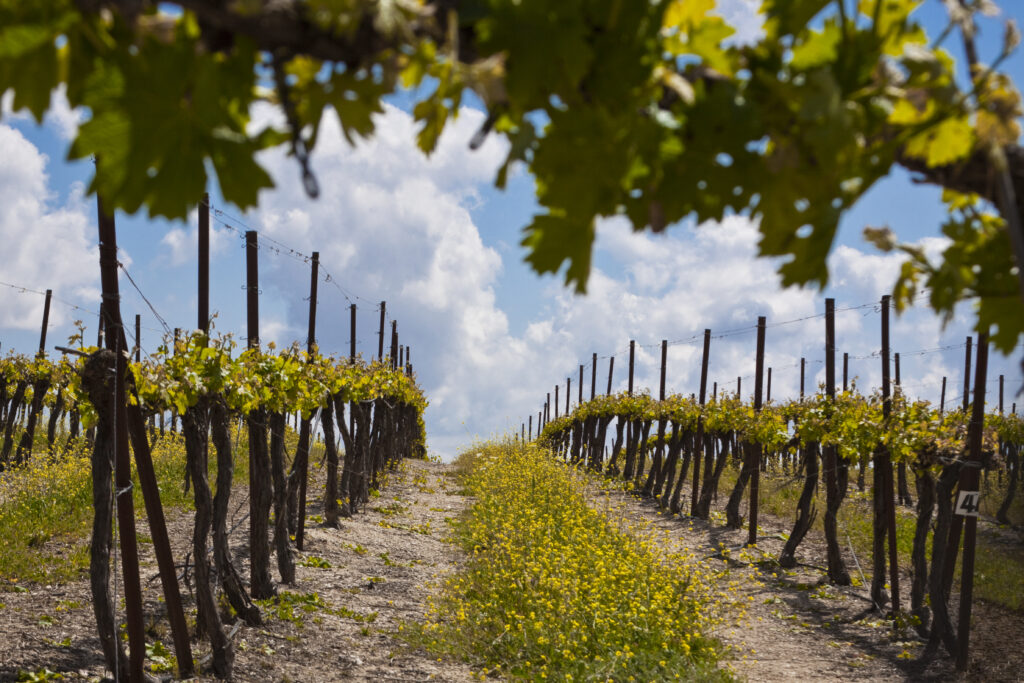
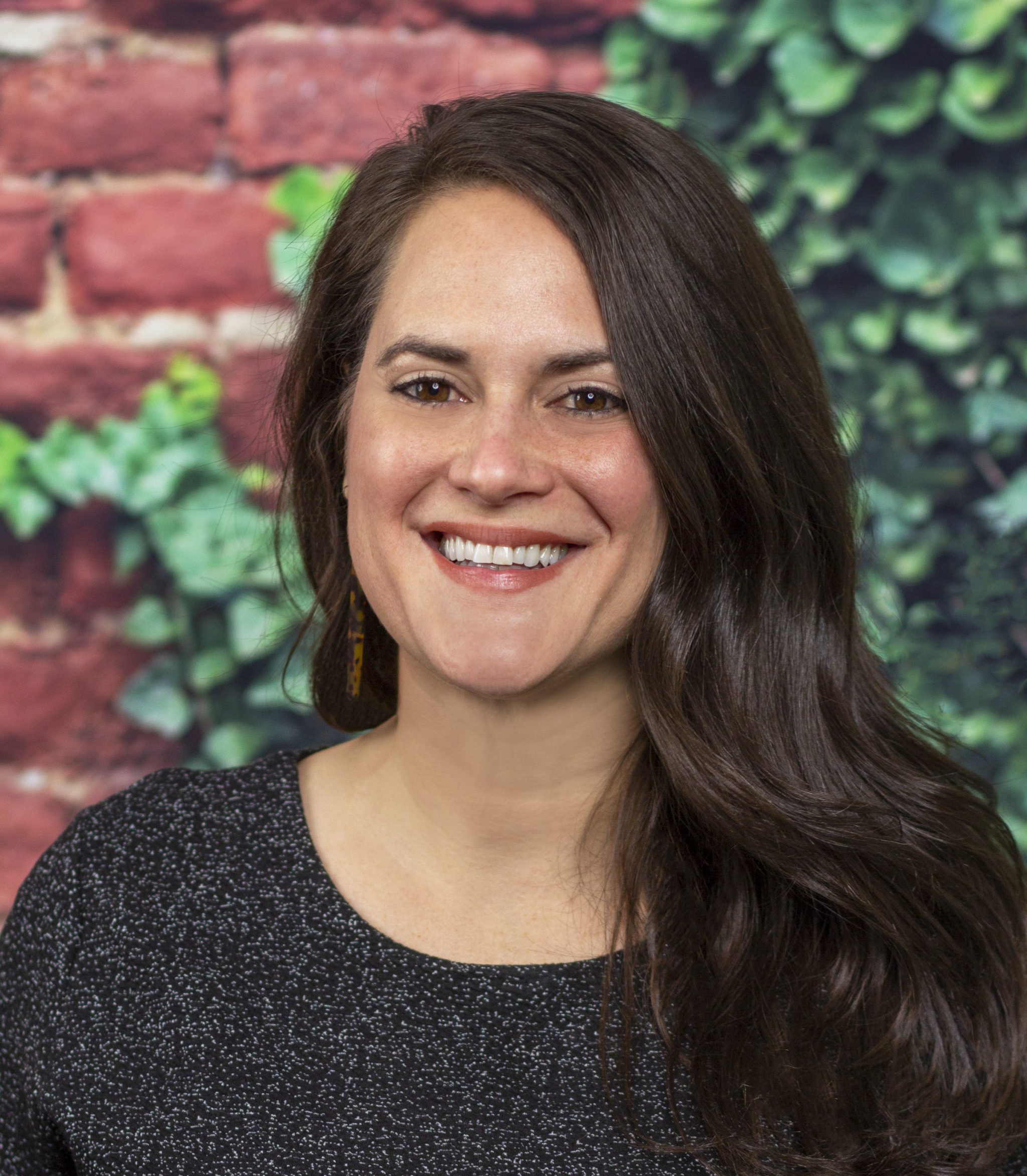 By Michelle Hartman, Communications Director
By Michelle Hartman, Communications Director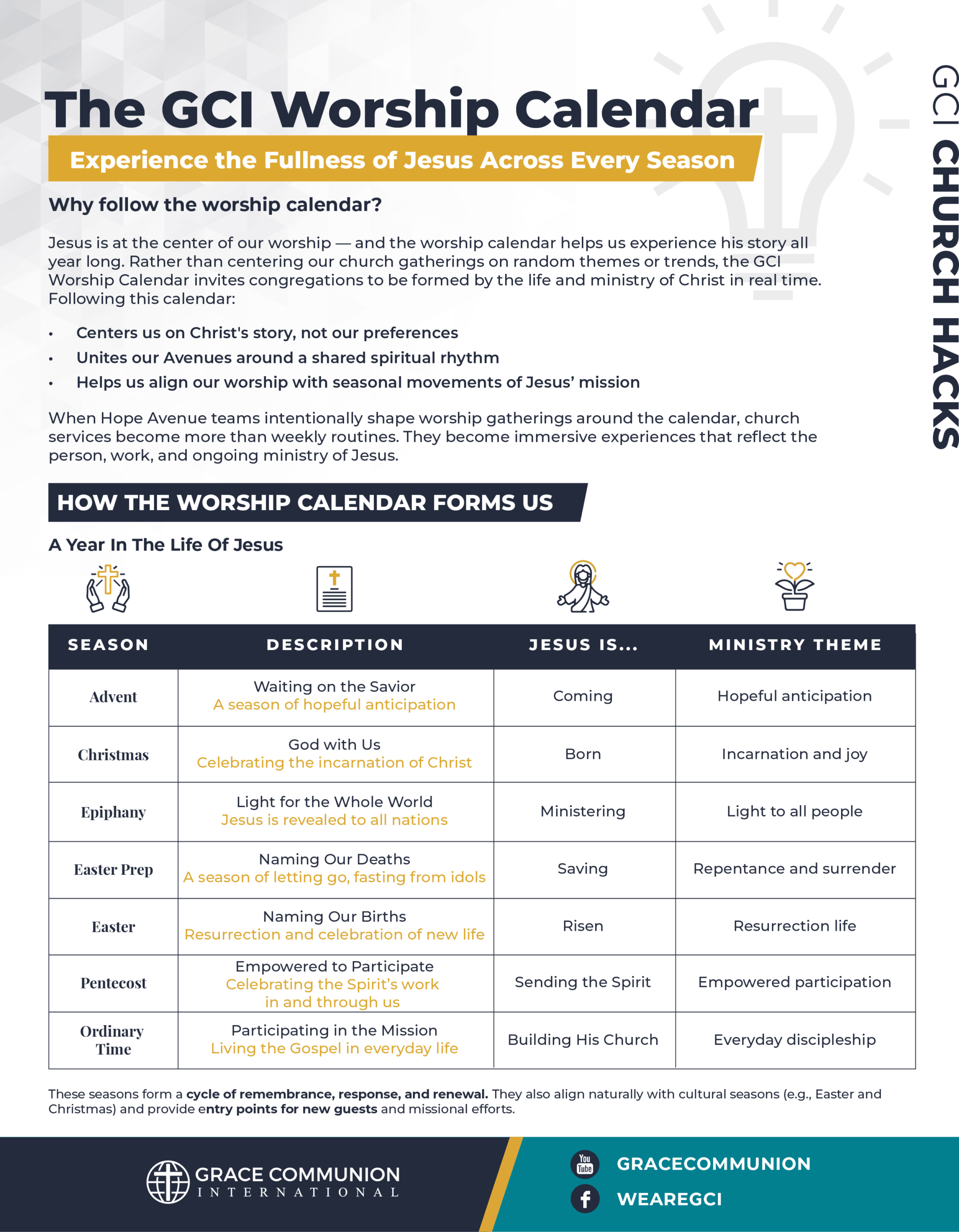
 By Brenda Benitez, Kids Ministry Leader
By Brenda Benitez, Kids Ministry Leader
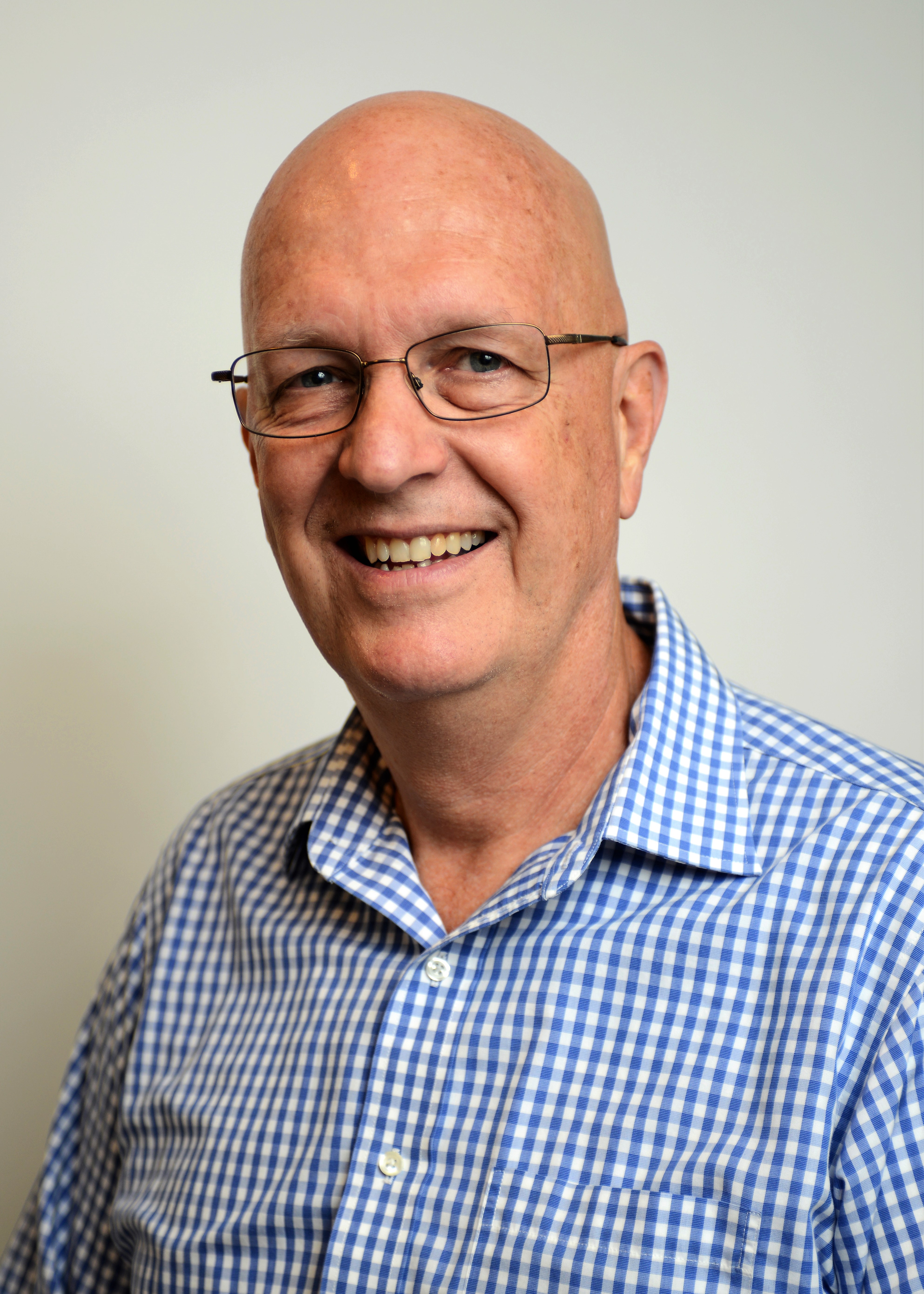

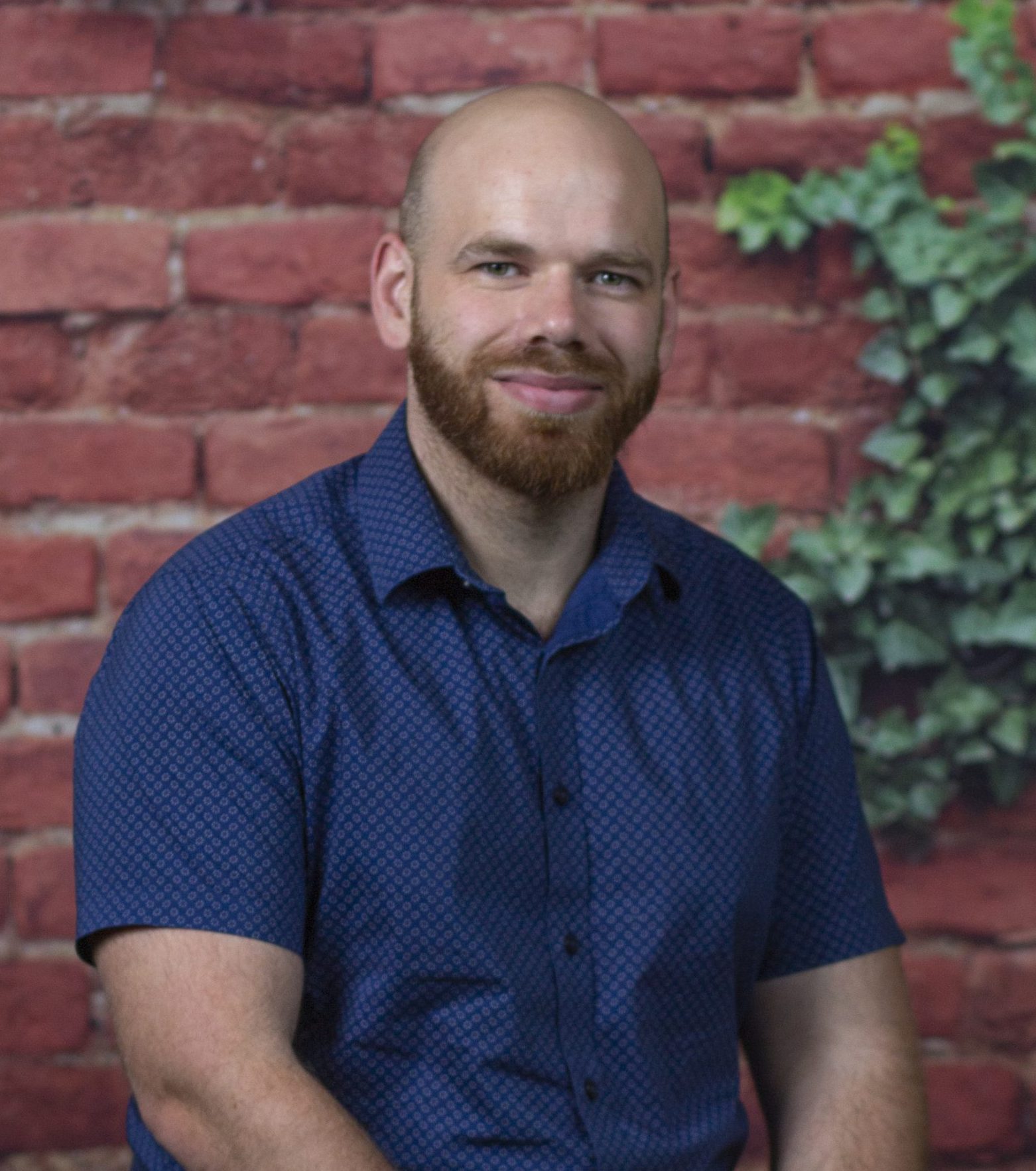 “The best way to start investing in the Kingdom is investing in people. Time is the most valuable thing you have and the most important thing that you spend that on is other people. … If you want to get a coffee and it’s just part of how you’re spending your day, invite somebody, bring them along. And it doesn’t have to be a scripted conversation about the gospel. You are being good news.” — Alexander Brandt
“The best way to start investing in the Kingdom is investing in people. Time is the most valuable thing you have and the most important thing that you spend that on is other people. … If you want to get a coffee and it’s just part of how you’re spending your day, invite somebody, bring them along. And it doesn’t have to be a scripted conversation about the gospel. You are being good news.” — Alexander Brandt